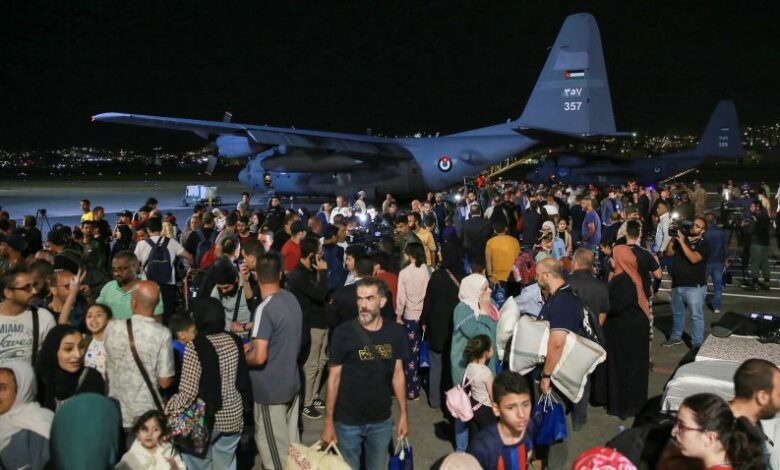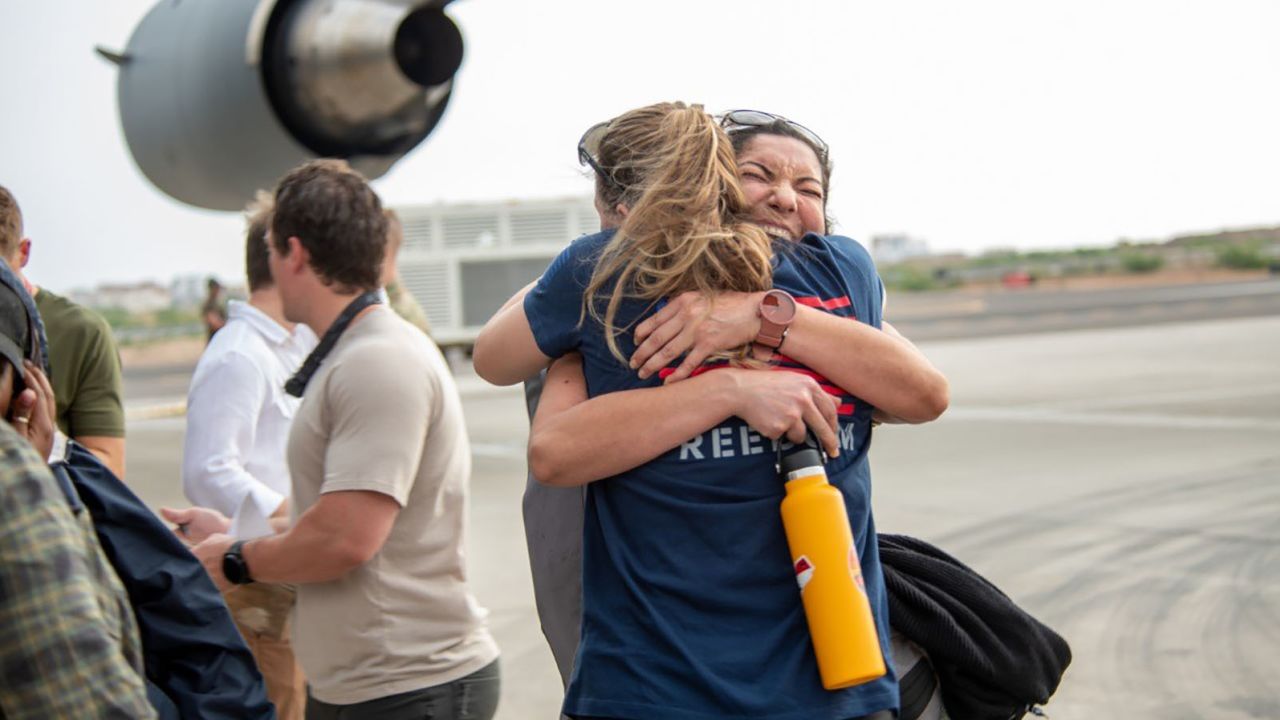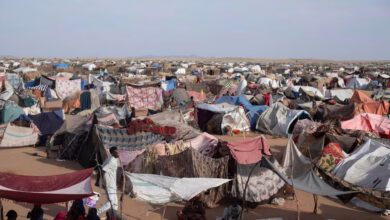
Western and Asian nations were among those mounting rapid evacuation efforts from Sudan on Tuesday, amid a delicate 72-hour ceasefire between warring forces that raised hopes of some respite from the fighting and a chance to open up escape routes after days of violence in the capital Khartoum.
While there appeared to be relatively less fighting on Tuesday than the day before, CNN journalists heard gunfire and the roar of fighter jets in Khartoum, and both the Sudanese army and the paramilitary group battling it for control of the country accused each other of violating the truce.
The United Kingdom, France, South Korea and a host of other countries confirmed Tuesday that they were pulling out nationals after US Secretary of State Antony Blinken announced that a three-day ceasefire had been agreed.
The White House is meanwhile considering a plan to send US troops to Port Sudan to help with the evacuation of American citizens, a US official with knowledge of the operations told CNN on Monday. Two US warships are also being deployed toward Port Sudan, the USS Truxtun and the USS Lewis B Puller, according to the official.
Previous ceasefires have collapsed within hours of being struck since clashes first gripped Sudan in mid-April. But the latest agreement, which Blinken said followed two days of “intense negotiation,” appeared to largely hold in its initial stages, giving countries a small window in which to hurry citizens and staff to safety. According to a statement from the Sudanese Armed Forces, Saudi Arabia was also involved in mediating the truce.
CNN’s team in Djibouti obtained images released by the US military showing personnel arriving in that country. France and Pakistan both said they had evacuated hundreds of nationals, while China said most of its citizens had also been pulled out of the country.
Many Sudanese people caught in the middle of the fighting have attempted to make their own perilous escapes from the capital, taking advantages of brief breaks in combat to rush to safety.
Sudan has been racked with violence since a bloody power struggle between two rival generals spilled into the streets, with forces loyal to each man engaging in combat on the streets of Khartoum and in towns around the capital.

Gunfire and fighter jets were heard in Khartoum on Tuesday morning despite the ceasefire, but fighting seemed to be relatively calmer than Monday, according to CNN journalists in the city.
The paramilitary Rapid Support Forces (RSF) blamed the army for violating the truce by “continuing to attack Khartoum by planes.” Eyewitnesses told CNN that fighter jets were heard over Omdurman to the north of the capital.
Residents in Khartoum said the paramilitary group have spread across streets of the capital and set up checkpoints, while the army continues defending its headquarters, the General Command building in the Hay Al Matar neighborhood near the airport.
Over the course of fighting, the RSF and Sudanese military have issued statements discrediting one another, with unsubstantiated claims of their control over key posts of the capital and accusations of each side targeting civilians.
On Monday, the Sudanese military claimed that the RSF killed an Egyptian diplomat, while the RSF claimed the army targeted civilians in an airstrike on a Khartoum neighborhood. Both groups did not provide evidence for the claims.
The West will eagerly watch developments on the ground on Tuesday, hoping that the current truce will stick. White House National Security Council spokesperson John Kirby told CNN on Monday evening: “We’re going to watch this as close as we can, monitor it as best we can and we’re going to continue to urge both sides to abide by this ceasefire.”
When asked if the US has provided any incentives to dissuade the ceasefire from breaking down, Kirby told CNN’s Wolf Blitzer, “We have made it very clear that they are responsible for the lives and livelihoods not only of the Sudanese people, but all the foreign nationals that are in Khartoum and in Sudan today, that they will bear that responsibility.”
CNN’s Mostafa Salem, Sam Kiley, Jennifer Hansler and Donald Judd contributed reporting




